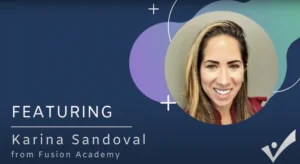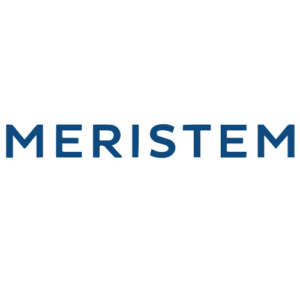From anxious and defeated to confident college student
Kate’s high school track record wasn’t great—she struggled to complete assignments and study for tests, and just barely graduated. When she was overwhelmed with to-dos, she’d avoid looking at her syllabus or rubrics altogether. This was causing her to fall further behind.
Kate’s family decided she wasn’t ready for the demands of attending a university, so she started her studies at the local community college. Her father reached out about coaching to get her help with organization, planning, and accountability. It was the perfect opportunity for her to start with a clean slate.
Fear of failure causing academic difficulties
In my first conversation with Kate, I noticed right away that she had a poor self-image—she didn’t see herself as a capable student at all. Her demeanor was flat and negative. She questioned whether or not she was even college material. Pessimism was her way of protecting the true, underlying issue: her fear of failure.
At the start of our coaching relationship, I asked her to write down what didn’t work for her as a high school student. We were able to explore all the real and perceived failures along her academic journey. Once we had it all out on the table, it was much easier to trace these shortfalls back. Most were a result of lack of preparation, inability to focus, and ineffective strategies to organize and prioritize tasks. It wasn’t her intelligence or abilities that were keeping her from succeeding. It was her patterns, behaviors, and lack of structure.
Taking action to create better study habits
 By separating her failures from who she was as a person, I was able to help Kate see that these negative experiences did not diminish her worth. We simply had to create better habits and systems to move forward successfully. Once we made this connection, she became much more open to adapting and we were able to create an action plan.
By separating her failures from who she was as a person, I was able to help Kate see that these negative experiences did not diminish her worth. We simply had to create better habits and systems to move forward successfully. Once we made this connection, she became much more open to adapting and we were able to create an action plan.
We began by looking through all of her syllabi and creating a calendar that showed her exactly what was due and when she would be working on it. The next step was to create frequent accountability check-ins. When she was stuck or getting overwhelmed, I was able to offer strategies and support for getting her refocused.
It wasn’t perfect from the get-go, but we worked hard to find a rhythm for working together. It proved to be just what she needed. Our frequent coaching sessions and check-ins gave her confidence and accountability to get her work done. She quickly found that with structure and new habits, she could meet deadlines and cope with overwhelm.
From almost failing to straight As
As it turns out, Kate was quite a good student—in fact, she was a straight-A student! Once I helped her develop routines and strategies her entire outlook and self-image changed for the better. I coached Kate for one year and during that time, I saw a young woman transform from almost failing to an accomplished student on her way to university. By the end of that year, Kate had mastered the executive function skills we worked on together. Now she’s implementing them independently and successfully at Colorado State University.

M.Ed., BCC, CSS and Co-founder of Thrivister
As co-founder of Thrivister, my purpose and passion is to help young adults with executive function challenges to thrive: manage, organize and be successful in their academics, careers and life. My successful EFS Coaching Method and journey as an ADHD coach, career service specialist, author, blogger, podcaster and board-certified coach for over a decade, has laid the foundation for our platform.
We believe opportunities are plentiful for someone with executive function challenges when they have the support and resources behind them. It is our mission through Thrivister to help as many people as possible be successful academically and into their future careers and life.

7 Trailblazing Celebrities and Icons Living & Thriving with ADHD
Explore the inspiring journeys of 7 influential individuals who have harnessed their ADHD to achieve greatness and make a lasting impact.

Unveiling the Complexities of ADHD: Insights from Dr. David Pomeroy
Unveiling the Complexities of ADHD: Insights from Dr. David Pomeroy https://youtu.be/EotABukIxlo Attention Deficit Hyperactivity Disorder (ADHD) is a multifaceted condition that impacts millions of lives

Navigating ADHD in Teens: Insights from MFT, Kelsey Thompson
Navigating ADHD in Teens: Insights from MFT, Kelsey Thompson https://youtu.be/omQndscdD5U In a recent interview with Kelsey Thompson, a seasoned Marriage and Family Therapist at The

Unlocking Potential: A Glimpse into Fusion Academy’s Personalized Education Model
Unlocking Potential: A Glimpse into Fusion Academy’s Personalized Education Model https://youtu.be/R7BgYW6A6k4 In the bustling world of education, where traditional models often struggle to meet the

Embracing Diversity: Navigating Support for Disabilities in Education
Accommodations in college and beyond come mainly from Section 504, which covers conditions as varied as anxiety and ulcerative colitis, ADHD and asthma, quadriplegia, and cancer. As more students qualify for disability accommodations and feel empowered to take them, long-stigmatized diagnoses have transformed into points of identification and affinity.

Sacramento Country Day School
A beautiful, expansive campus specifically developed to serve Pre-K through 12th grade students across our Lower, Middle, and High School. Small class sizes and a dynamic learning environment offer our students opportunities to discover and joyfully pursue their unique strengths.

Meristem
Meristem is a unique program dedicated to preparing neurodiverse young adults for a life of greater independence and fulfillment. We are located near Sacramento, California, on a 13-acre campus in Fair Oaks. Meristem students are young adults, between the ages of 18-28, who show the potential to achieve greater independence and self-sufficiency upon graduation. They often have aspirations for career and/or college, and are willing to discover and work towards their passions and goals. Space is currently available to live on-campus and gain independent living and social skills while attending our day program or pursuing college or employment goals. Ask about scholarships opportunities for families eligible for financial assistance.

